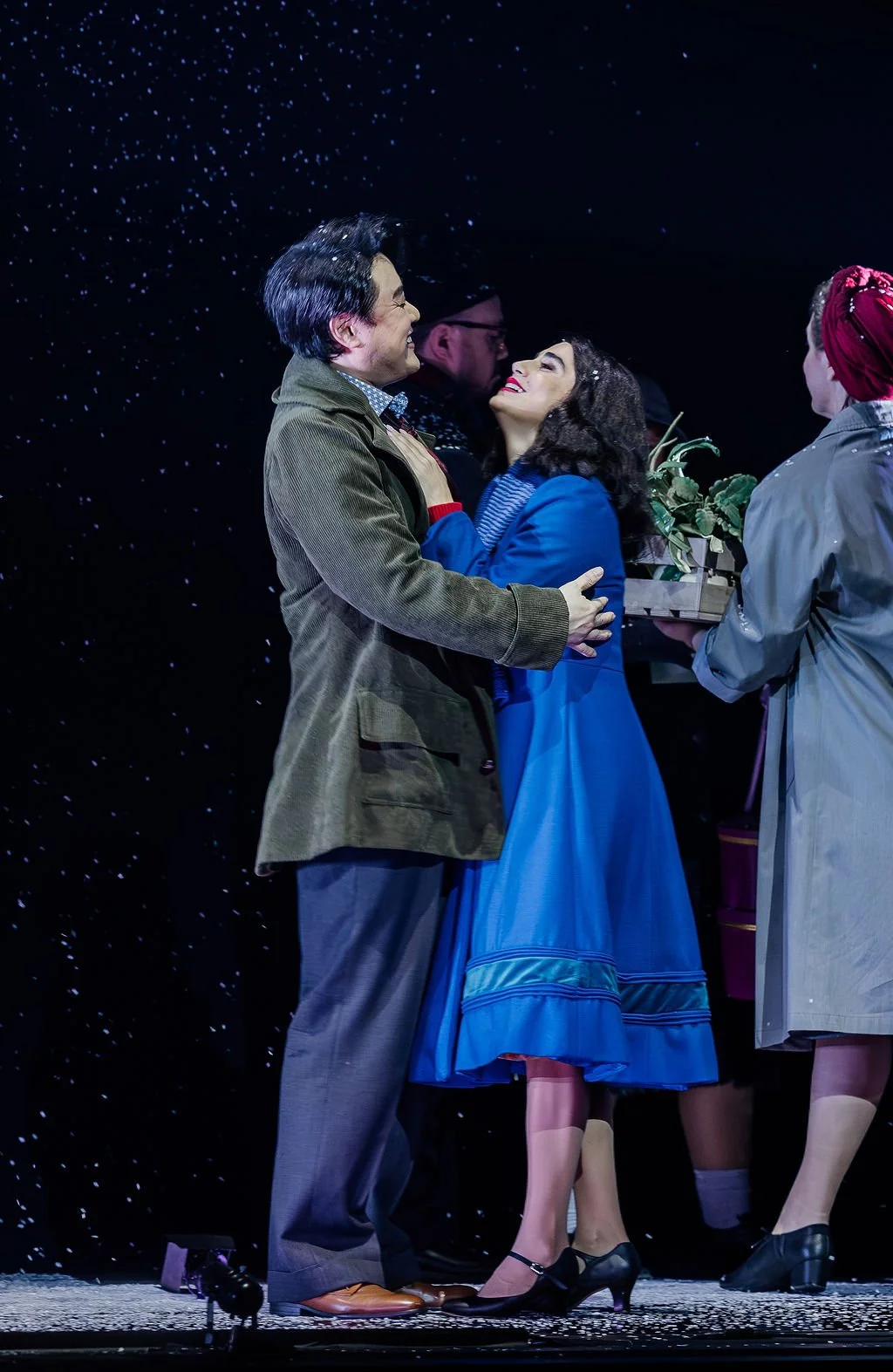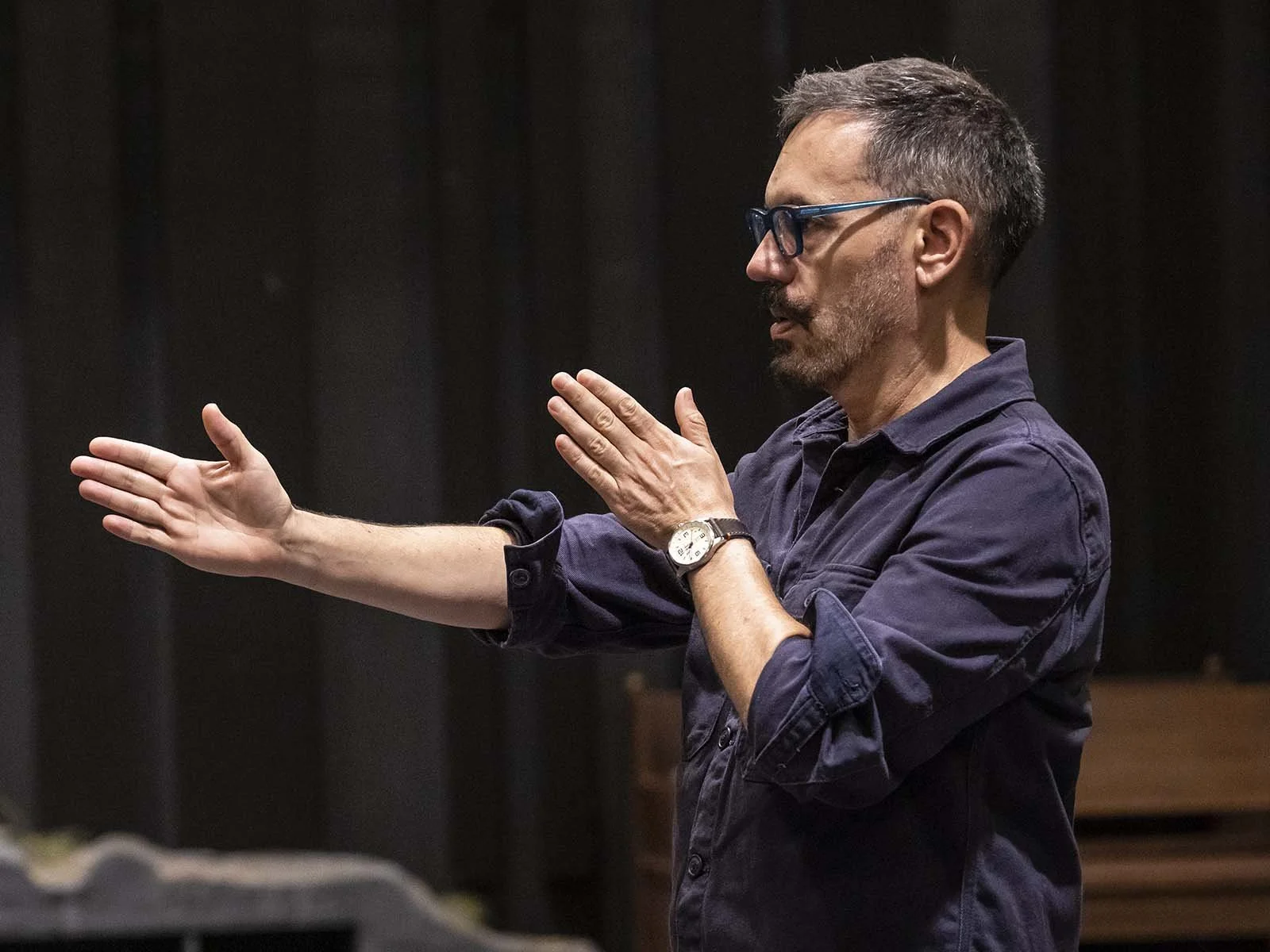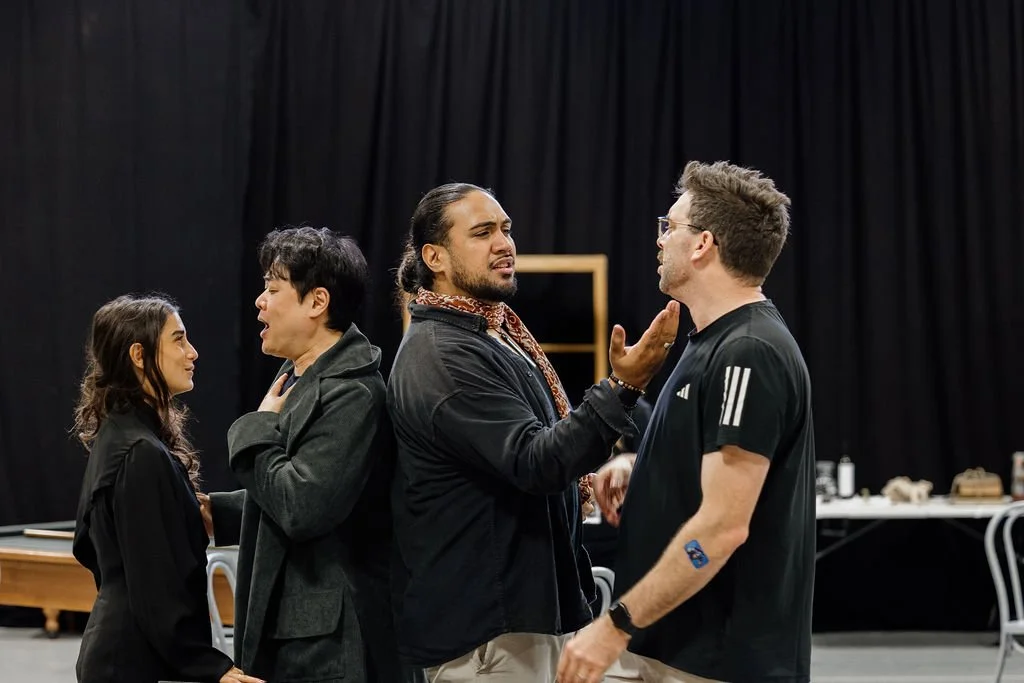NZ Opera’s new La Bohème: what’s the enduring appeal of Puccini’s masterpiece?
Tenor Ji-Min Park (Rodolfo) and soprano Elena Perroni (Mimi) in the NZ Opera production of Puccini’s La Bohème
Photo credit: Andi Crown
New Zealand Opera is opening its production of Giacomo Puccini's much-loved opera La Bohème this week, with seasons in Auckland, Wellington and Christchurch. If you feel as if you know the opera well, that's not surprising - this is NZ Opera's fourth Bohème this century.
The touching and tragic story of young lovers Mimi and Rodolfo and their bohemian friends, combined with Puccini's lyrical and memorable music, have made Bohème one of the world's most popular operas. In 2017 it was performed, on average, more than once a day in opera houses around the world.
So why has its popularity endured so long after its premiere in 1896? And why is NZ Opera presenting it again in 2025?
Brad Cohen, NZ Opera's thoughtful and strategic General Director, is conducting the Auckland season, and took time out from the rehearsal room to offer some answers.
Brad Cohen, conductor of NZ Opera’s Auckland season of La Bohème
“…it’s pretty much a perfect opera!”
Photo credit: Andi Crown
La Bohème, he explains, is a lodestone for any opera company. “It’s pretty much a perfect opera, in terms of the music, the shape of the libretto and the audience experience. It has all the elements. It’s short, it has a touching story of love and loss, it has great singing, great writing and a very satisfying dramatic arc. Puccini had such theatrical nous at such a young age.”
Puccini was a leading proponent of the ‘verismo’ tradition, creating operas in which the stories, characters and experiences are believable, even familiar. It’s a tradition which enables audiences to identify with the characters and their challenges.
Cohen thinks there’s a paradox in the public view of Puccini as a highly emotional composer, a view which has led some to underestimate his intellectual depth and dismiss him as overly sentimental. “Like all good comedians, he’s got the precision of an engineer. ‘How do I achieve this moment with this precision at this pace?’ And, like good comedy, it looks random and chaotic and hilarious, but it’s incredibly well built, which really appeals to me, and its good construction is one of the reasons for its resilience.”
Of course, though there are comedic moments, La Bohème is ultimately deeply tragic, and, as in many operas, the heroine dies in the end. Why is it so popular even now?
Cohen’s answer is direct. “It doesn’t have any violence against women for a start. I think this is a genuinely important issue, with the problematic reception of so much of Puccini’s other work. I would not produce a Butterfly at the moment; I wouldn’t produce a Turandot. The surfacing of violence towards women in opera is very complicated.”
He refers to Catherine Clément, a French musicologist who wrote her feminist criticism of the art form, Opera, or the Undoing of Women, in the late 1980’s, well before the #metoo movement. She suggested opera audiences are manipulated emotionally to desire the death of the heroine. “Glowing with tears, their décolletés cut to the heart, they expose themselves to the gaze of those who come to take pleasure in their pretend agonies. Not one of them escapes with her life, or very few of them do…”
Mimi dies, but hers is not a violent death. “The absence of violence,” says Cohen, “is an appealing aspect of Bohème, but it’s not the only aspect. It’s popular because, of course, the tunes are there. And for many western opera audiences, there’s a nostalgia about youth and hope in adversity. It reconnects us with younger versions of ourselves – if it’s well-done, not clichéd. If we can recognise ourselves in the characters on the stage, that is always a real punch.”
When asked what’s special about this brand-new NZ Opera production, Cohen refers to the Director, Bruno Ravella. “The choice of director is a fundamental responsibility of any opera company. Who are we going to entrust with this?” Cohen has been working with Ravella over the past nine years and says they are close artistically and personally. “I’ve also been following his very impressive ascent,” Cohen says, “up the ladder of international opera direction.”
Bruno Ravella, Director of NZ Opera’s La Bohème
“…uniquely gifted as a director of opera.”
Photo credit: Carole Parodi
London-based Ravella was born in Casablanca of Italian and Polish parents and educated in France. He’s recognised internationally for his ability to portray the subtleties of the human condition, and his attention to detail in a ‘less is more’ approach.
Cohen believes Ravella is uniquely gifted as a director. “He has impeccable taste, always searching for a connection to authenticity and always knowing how to achieve it through detailed direction. He’s also a very humane colleague and artistic creative. He thinks and cares deeply about these pieces.”
Cohen and Ravella have taken great pains throughout the rehearsal period to observe the details, and to respect Puccini’s original version of an opera that has had many traditions layered on to it over the years. “By going back to the source,” Cohen says, “but with all our performing experience of the piece, I think we do it honour. Our production is respectful of the work but also manages to deliver all its freighted power, because Puccini knew what he was doing.”
The new production will look beautiful, Cohen assures me. Puccini set his opera in the most romantic of cities, Paris, in mid-winter. Ravella explained recently how his production has responded to the setting.
“The city of Paris is…a character in itself. That’s what inspired the idea of the city map, which we’ve used as a prop throughout: it’s a visual thread connecting the intimate and the epic, from garrets to grand cafés.”
Today, opera directors can choose the era in which their productions are enacted. This Bohème is set half a century after it was written, in 1947, just after World War 2. “The city is scarred, but starting to heal,” explains Ravella. “Resources are scarce, but spirits are rising. That tension – between fragility and hope – feels deeply aligned with the world of Bohème.”
Cohen is confident that this most tuneful of operas will also be beautifully sung. “We have a very experienced cast, some of whom have sung their roles many times across the world. It’s a strong argument for the mixture of casting we do at NZ Opera – casting New Zealand artists wherever possible but also bringing in international talent at a certain level of expertise.”
(from left) Elena Perroni (Mimi), Ji-Min Park (Rodolfo), Benson Wilson (Schaunard) and Samuel Dundas (Marcello) rehearsing NZ Opera’s La Bohème
Photo credit: Andi Crown
South Korean tenor Ji-Min Park is Rodolfo, a role he has sung numerous times over the past decade, including performances at Cincinnati Opera and the Royal Opera House in London. Australian lyric soprano Elena Perroni has also sung the role of Mimi to acclaim in international settings as well as her home country. More familiar to New Zealand audiences are soprano Emma Pearson, who makes her role debut as Musetta and London-based New Zealand baritone Benson Wilson, being welcomed to his debut performance with NZ Opera in the role of Schaunard.
Cohen hopes that both the casting and the painstaking process in the rehearsal room will reveal the depths in the piece and encourage audiences to look more deeply at the opera. “La Boheme is a state of mind, not a place; it’s about this bohemian way of thinking about the world. Both the opera and this production have a very poetic concept of the emotional stuff. We’ve had floods of tears just in rehearsal; something is happening in this space, and that’s what we’re about to bring to the audience.”
New Zealand Opera La Bohème by Puccini, Conductors Brad Cohen (Auckland), Dionysis Grammenos (Wellington and Christchurch), Director Bruno Ravella. Auckland 29 May – 6 June, Wellington 18 – 22 June, Christchurch 2-6 July, 2025. More information and booking links here
You can also read my 2023 profile NZ Opera’s new head, Brad Cohen: sharing the power of music




